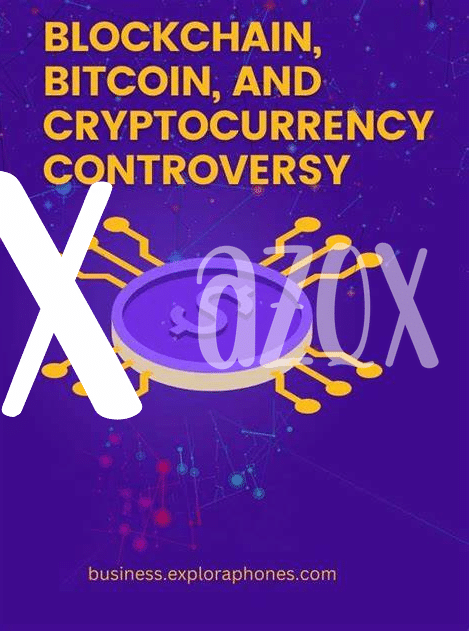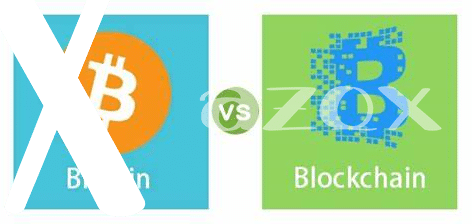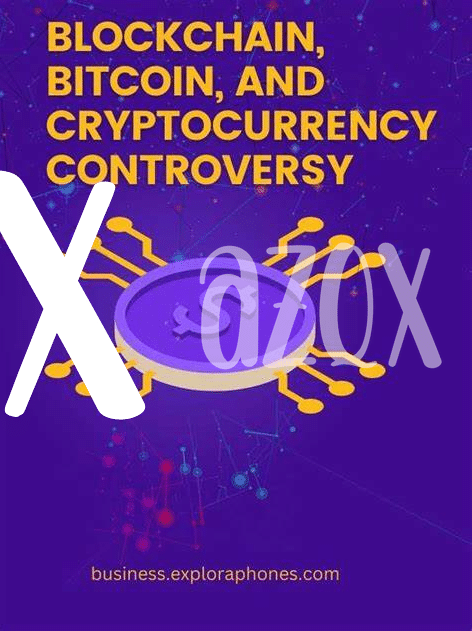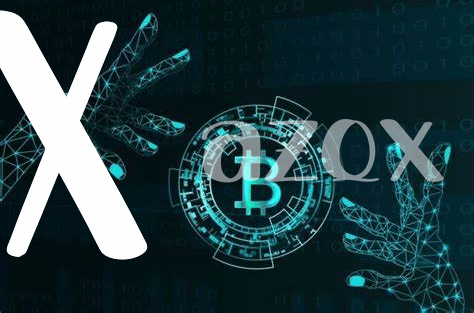Beyond Bitcoin: the World of Decentralization 🌍

Imagine stepping into a world where you’re not just a spectator but an active participant in the digital realm. This world goes far beyond the familiar territory of Bitcoin—a pioneering form of digital money—and ventures into an expansive universe known as decentralization. Here, power and control spread out like the branches of a vast tree, reaching into various areas of our lives and giving us more say in how things operate. It’s like moving from a single-lane road to a vast network of highways, each path promising new possibilities and adventures.
Decentralization isn’t just about digital currency; it’s the foundation for a whole new way of creating, sharing, and managing digital assets. This concept is transforming how we think about online spaces, ownership, and even our digital identities. The table below captures the essence of what lies beyond Bitcoin in the decentralization landscape:
| Aspect | Description | Impact 🌟 |
|---|---|---|
| Digital Assets | Ownership and exchange of digital goods without central control. | Empowerment & Security 🔐 |
| Online Spaces | Decentralized platforms for information sharing and communication. | Innovation & Freedom 🌍 |
| Digital Identity | Control over one’s identity and personal data online. | Privacy & Trust 🔒 |
By embracing the principles of decentralization, we’re not just envisioning a future with more technological freedom—we’re actively building it.
The Power of Smart Contracts: Efficiency Unlocked 🔐
Imagine a world where you could seal a deal or make a purchase without worrying about long waits or the fine print slipping through the cracks. That’s where smart contracts come into play – think of them as self-executing contracts running on computer codes. These aren’t just any contracts though; they automatically enforce and verify the terms agreed upon by all parties involved. It’s like having a super-efficient robot mediator that doesn’t miss a beat. This transformative tech unlocks efficiency by slashing the time and cost linked to traditional agreements, not to mention the added security and trust it brings to the table. For instance, when you’re buying a house, instead of drowning in paperwork and waiting on endless approvals, a smart contract could streamline the whole process, making it faster and headache-free. But the potential doesn’t stop with real estate; from ensuring creators get paid fairly for their music to making supply chains more transparent, the implications are vast. And for those concerned about becoming victims of cyber attacks, the integration of blockchain’s robust security measures with smart contracts offers a beacon of hope, securing digital transactions like never before. To dive deeper into the transformative power of blockchain in cyber defense, check out this fascinating article: https://wikicrypto.news/cryptocurrency-as-corporate-treasury-a-bold-new-approach.
The Ripple Effect: How Decentralization Influences Industries 🌊

Imagine a world where our industries don’t rely on just a few big players to make all the decisions. This is where decentralization comes into play, changing the game with its wave-like influence across various sectors 🌊. From banking to the arts, these changes are like removing the middle man, making transactions quicker and opening doors for everyone to participate more freely. It’s like turning industries into a community project, where the control and benefits are spread out, not just sitting with the top dogs 🐕. This not only makes things more efficient but also more fair. Plus, it injects a dose of innovation, as more minds and approaches are involved in shaping the future. It’s a shift towards a more open and inclusive way of doing business, setting a new standard for how we interact with the sectors that are woven into our daily lives.
The Green Side of Decentralization: Eco-friendly Tech 🌱

Decentralization isn’t just a buzzword in the realm of cryptocurrency; it’s paving the way for a greener and more eco-friendly future 🌱. Imagine a world where the energy consuming beasts of traditional financial systems and online security measures are replaced by energy-efficient technologies powered by blockchain. This isn’t a far-off dream. Innovations such as proof of stake, a method that requires significantly less energy than the traditional proof of work method used by Bitcoin, are leading the charge towards a sustainable tech landscape. By decentralizing, we are not only distributing power away from central entities but also contributing to a reduction in our carbon footprint, making eco-conscious technology an achievable goal 🌍.
The beauty of decentralization further extends to its potential in promoting green technology and practices. Through the implementation of blockchain, companies are finding innovative ways to monitor and reduce their environmental impact. For example, supply chains become more transparent, allowing consumers to make eco-friendly choices easily. Yet, embracing this green side of technology does come with its challenges. The journey towards widespread acceptance and application of these eco-friendly solutions requires both innovation and a collective shift in mindset. To understand how these advancements tackle current issues like bitcoin and cybercrime and the blockchain, we can look towards the future with optimism, hoping for a world where technology and environmental stewardship go hand in hand 🌎.
Decentralization in Everyday Life: from Voting to Shopping 🛍
Imagine going to vote without standing in a seemingly endless queue or shopping for groceries without waiting at the checkout line. That’s the magic woven by the evolving technology of decentralization 🌍. It’s like a scene from a sci-fi movie, but it’s inching closer to reality each day. This tech promises to make our daily tasks smoother and more secure, giving us back our precious time. From casting your vote from the comfort of your home to making instant purchases with a simple tap on your phone, the convenience factor is off the charts.
However, it’s not just about making life easier, but also about giving power back to the people 👥. For example, in voting, it ensures that your vote is safely counted without interference. In shopping, it can lead to more fair prices and better quality, as it cuts out unnecessary middlemen. This shift towards a world where every little aspect of our day-to-day life, from major decisions to minor purchases, is impacted by decentralization, brings both excitement and a dash of skepticism.
| Aspect | Impact of Decentralization |
|---|---|
| Voting | More secure and convenient, without geographical constraints. |
| Shopping | Fairer prices and better quality by removing middlemen. |
The Challenges Ahead: Security, Scalability, and Acceptance ⚔️

As we navigate the exciting world of decentralization, we must also address its growing pains. Think of it as setting up a massive online game where everyone needs a fair chance to play, but there are a few hiccups along the way. A critical hiccup is ensuring that this game is safe from hackers wanting to spoil the fun, a challenge known as security. Security is like the lock on your front door, but instead of keeping out burglars, it’s about keeping our digital treasures safe. Then there’s the issue of scalability, which is a fancy way of saying that as more people join in, the game needs to run smoothly without any lags or crashes, ensuring that everyone can vote, shop, or transact at lightning speed without a hitch.
Another big step is getting everyone on board with this new way of playing the game, which we can think of as acceptance. Just like any new game, getting friends to try it out can be tricky. It’s not just about convincing your friends, though; it’s about getting big companies to see the value too. For a real-world touch, imagine how game-changing it would be for businesses to embrace bitcoin payment gateways and the blockchain, making transactions not just faster, but also more secure and transparent. 🌐⚔️🔍 Yet, like any big change, these steps come with their fair share of hurdles. But as we’ve seen with the evolution of the internet, overcoming these challenges can lead to a landscape of unimaginable possibilities, where our everyday activities are easier, safer, and more democratic.
